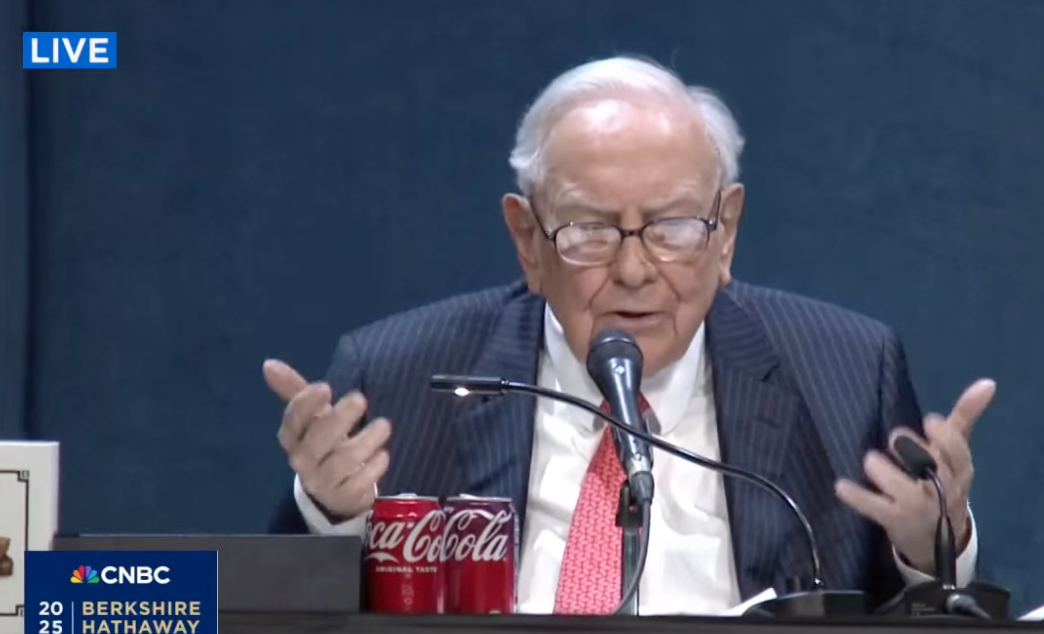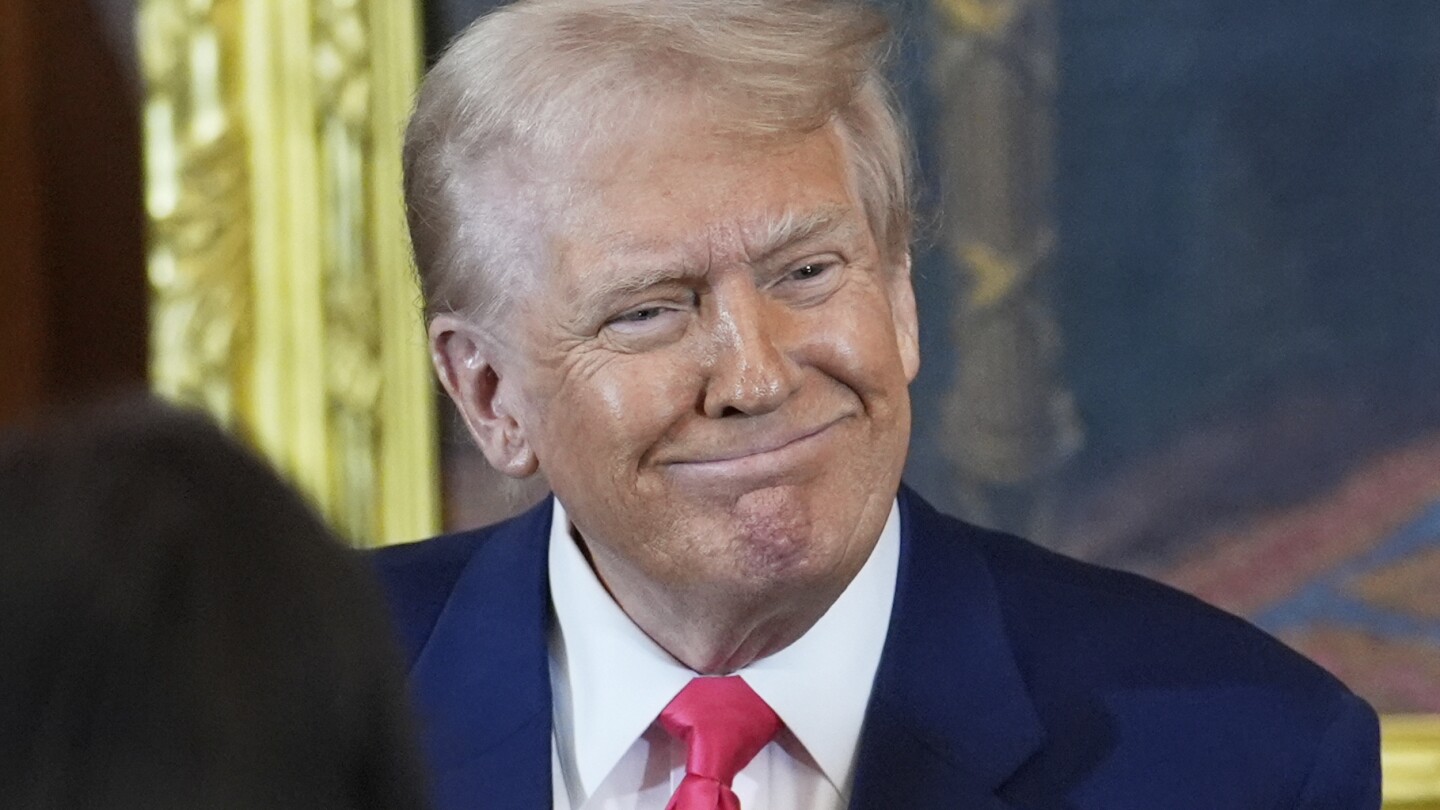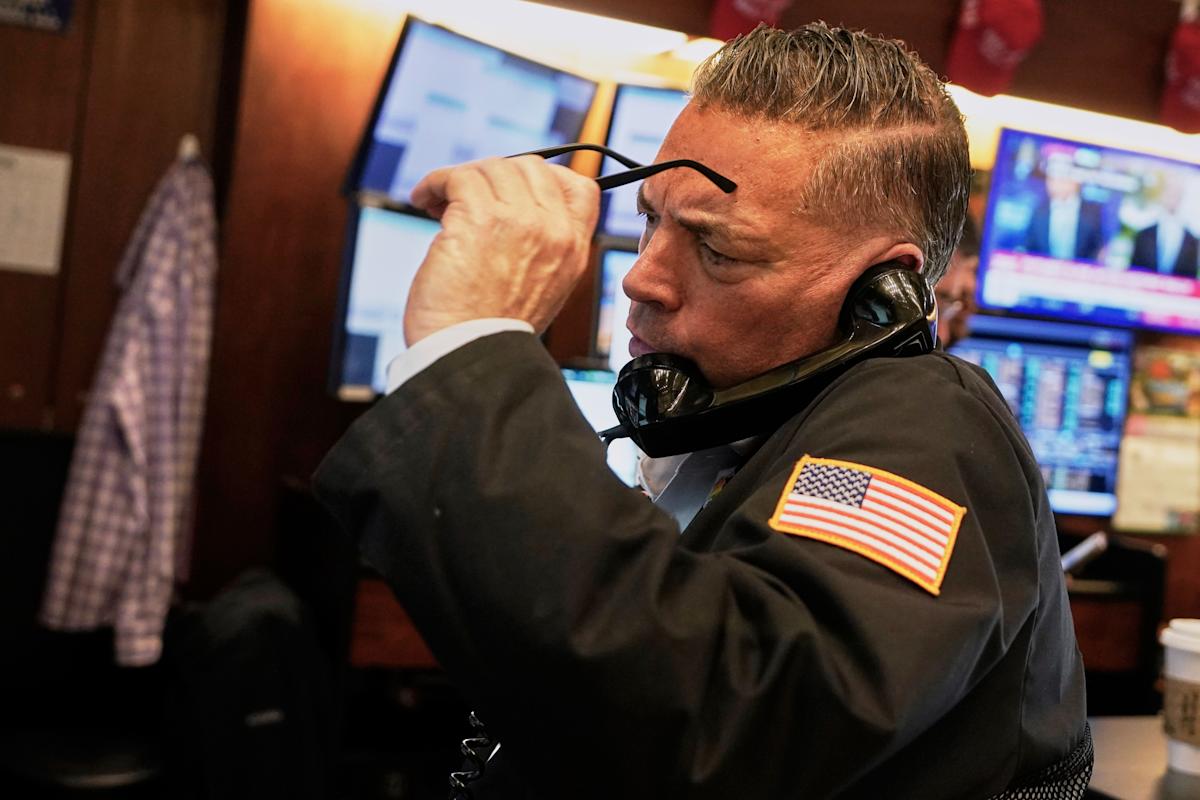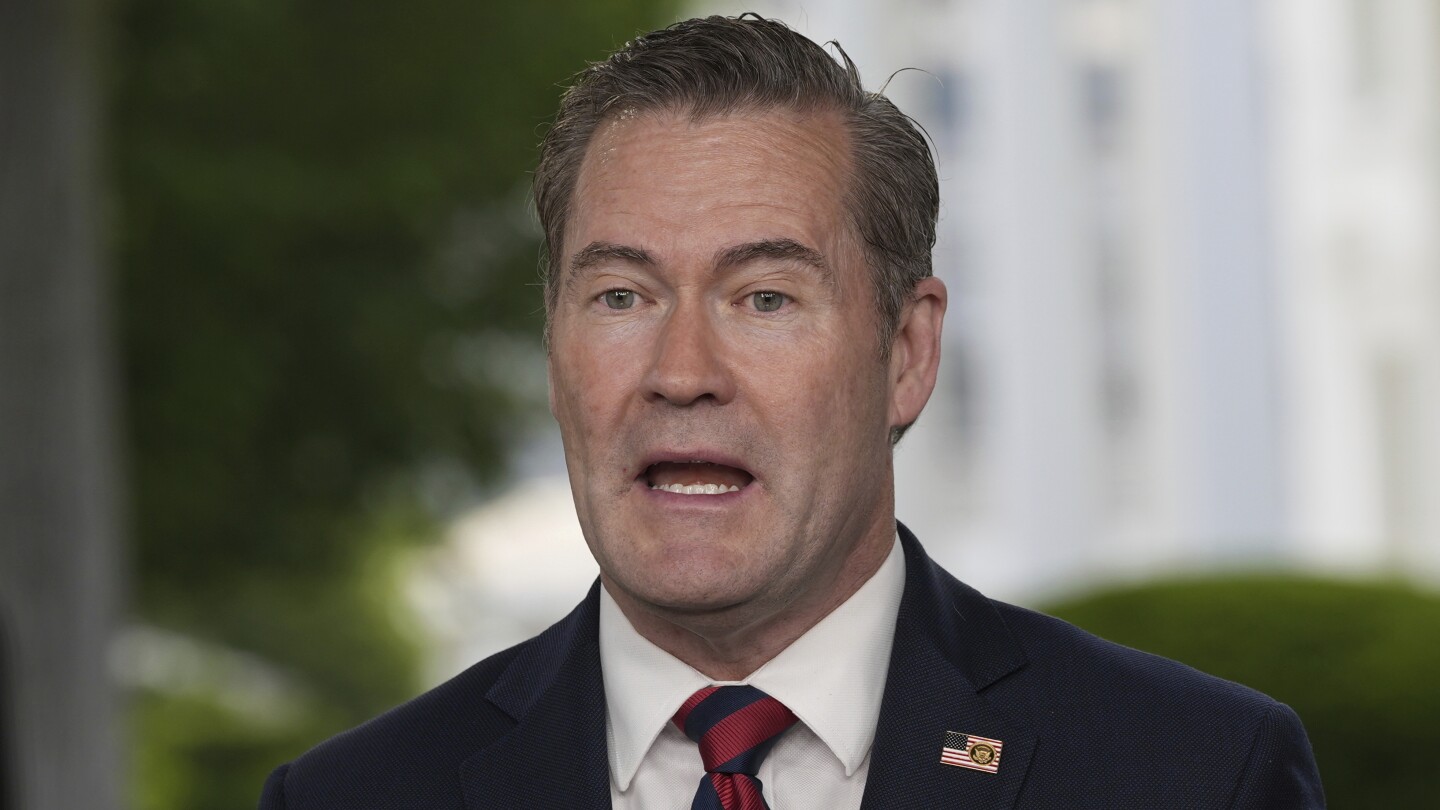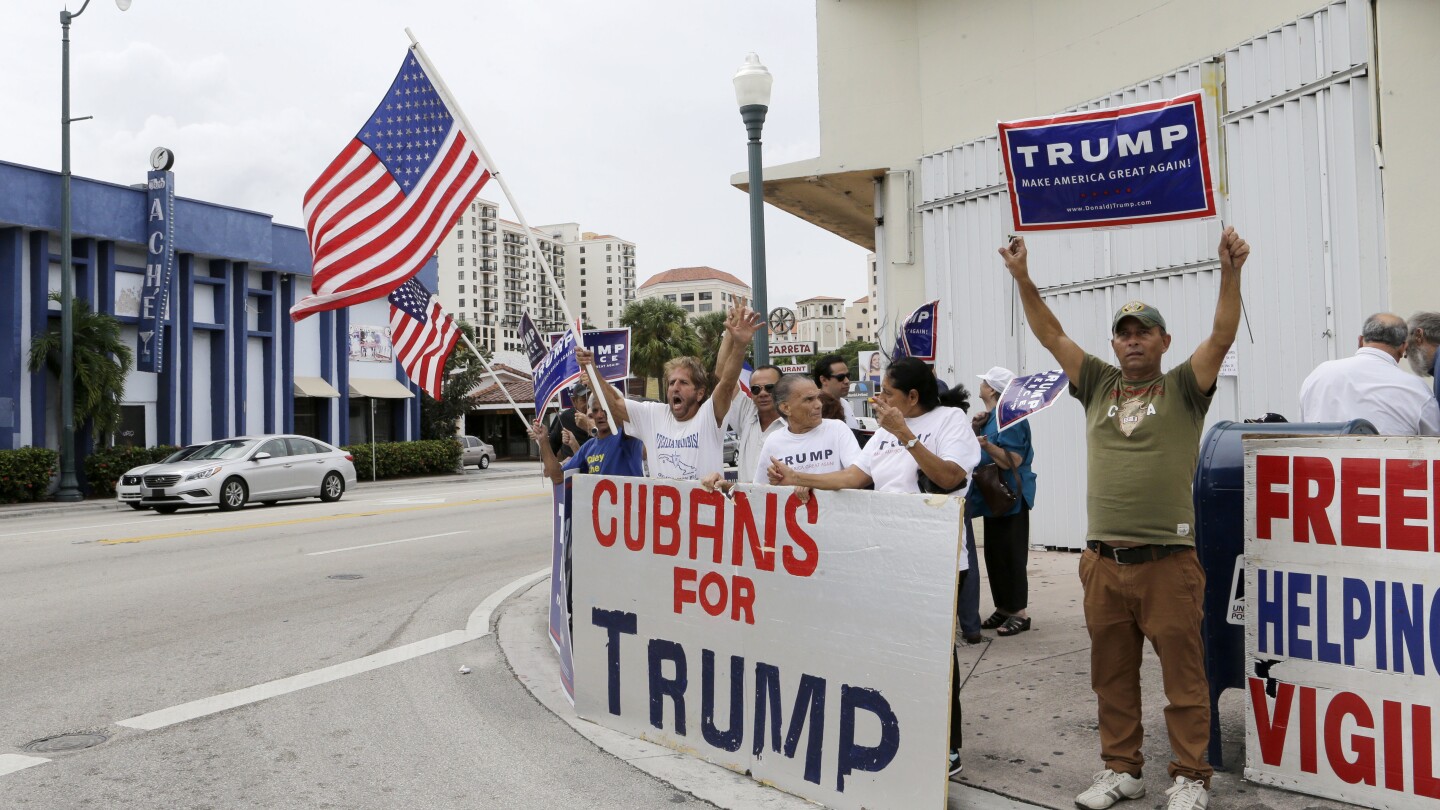Stocks gained ground Wednesday morning, led by a surge in technology shares, as volatile trading continued after the U.S. imposed wide-ranging tariffs overnight and China retaliated this morning.
The S&P 500 and tech-heavy Nasdaq Composite were up 1% and 2%, respectively, about an hour after the opening bell. while the Dow Jones Industrial Average added 0.5%. Stocks are coming off of two extraordinarily volatile sessions in which major indexes swung wildly between gains and losses, as investors awaited the U.S. tariff deadline and the possible response from leading U.S. trade partners.
Heading into Wednesday, the S&P 500 had lost 12% of its value over the four sessions since President Trump announced his plan to impose impose sweeping tariffs on almost every country, with some major trading partners, including China, Japan and the European Union, subject to particularly high levies.
Those so-called “reciprocal” tariffs went into effect at midnight, prompting China to respond this morning by raising its tariff on U.S. imports to 84%. The intensifying trade war has sparked concerns among economists and investors that economic growth will screech to a halt and corporate profits will be eroded.
Shares of Apple (AAPL), which has a huge manufacturing presence in China, were up 4% in recent trading, rebounding from four sessions of steep declines. The stock has lost more than one-fifth of its value since Trump unveiled his tariff plan last week.
Other mega-cap technology stocks were up across the board, led by EV maker Tesla (TSLA), which jumped 5%. Chipmakers Nvidia (NVDA) and Broadcom (AVGO) were up 4% and 3, respectively, while Microsoft (MSFT), Amazon (AMZN), Alphabet (GOOG) and Meta Platforms (META) also moved solidly higher.
Among other notable tech names, data analytics software provider Palantir (PLTR) gained 3%, while chipmakers Intel (INTC) and Advanced Micro Devices (AMD) rose 3% and 6%, respectively.
Bank stocks were under pressure as JPMorgan Chase (JPM) CEO Jamie Dimon, speaking on an interview this morning with Fox Business, said that a recession is a “likely outcome” from the tariffs. JPM shares were down 0.6%, while Bank of America (BAC), Wells Fargo (WFC) and Citigroup (C) each fell more than 2%. Bank earnings reporting season kicks off on Friday.
Exxon Mobil (XOM) and Chevron (CVX) were down more than 2% as crude oil prices continued to tumble on fears that global demand could slow. West Texas Intermediate futures, the U.S. crude oil benchmark, were down 4.5% at about $56.95 per barrel recently, after hitting a new four-year low this morning of just above $55.
Gold futures rose 3.6% to around $3,100 an ounce as investors turned to safe-haven assets amid the market volatility.
Bitcoin was trading at $77,400, up from an overnight low of $74,600, giving crypto related stocks a boost. Strategy (MSTR), the major holder of bitcoin that until recently was known as MicroStrategy, was up 4% this morning
The yield on the 10-year Treasury, which typically falls when the stock market is under pressure, was at 4.39% recently, down from an earlier high of 4.52%, its highest level since mid-February, but up from 4.26% at yesterday’s close. Analysts said that the unusual moves could stem from a number of factors including traders seeking out liquidity, Chinese investors dumping Treasurys or hedge fund maneuvering.
What to Watch For From Big Bank Earnings
45 minutes ago
As U.S. banks begin reporting their quarterly earnings on Friday, investors will watch to see whether fears about tariffs are hampering clients’ borrowing appetites and ability to repay loans.
Banks’ results coming soon from the first quarter will matter, but the fallout from April 2, which President Donald Trump dubbed “Liberation Day,” may be more consequential. President Donald Trump’s tariff plans have raised recession risks and triggered sell-offs in stock markets, complicating the outlook for the banking industry.
“While banks might not be directly impacted by tariffs, they are exposed to every industry that is,” Jason Goldberg, an analyst at Barclays, wrote in a note Friday.
The latest bout of uncertainty has hammered bank stocks. The KBW Nasdaq Bank Index (BKX) is down about 18% this year through Tuesday’s close, outpacing the decline in the S&P 500 index, as investors worry that an economic downturn will make it hard for consumers and businesses to repay debts. The KBW Nasdaq index of regional banks or KRX, is off a similar amount.
The last week has “completely upended” expectations for the industry, Scott Siefers, a bank analyst at Piper Sandler, wrote on Monday.
“We doubt we’ll get all the answers we want with earnings, but at least banks will have the chance to respond to the emerging backdrop and to shape expectations,” Siefers said.
Read the full article here.
Delta Says Growth ‘Largely Stalled’ Amid Uncertainty
1 hr 16 min ago
Delta Air Lines (DAL) shares rose in premarket trading Wednesday after the carrier’s fiscal first-quarter results came in better than analysts had expected.
Delta reported adjusted earnings per share (EPS) of $0.46 on operating revenue of $14.04 billion. Analysts polled by Visible Alpha had forecast $0.39 and $13.89 billion, respectively.
The airline reported passenger revenue per available seat mile of 16.78 cents and cost per available seat mile of 19.69 cents; analysts had expected Delta to lose about 2.8 cents per ASM transporting passengers. Delta and domestic rivals United Airlines (UAL), American Airlines (AAL), and Southwest Airlines (LUV) all were profitable but lost money flying passengers in 2024.
Delta said it expects second-quarter revenue to rise or decline by 2% and adjusted EPS from $1.70 to $2.30, below the $2.41 consensus. The airline said it is not affirming or updating full-year projections at this time “given current uncertainty.”
“With broad economic uncertainty around global trade, growth has largely stalled,” CEO Ed Bastian said. “In this slower-growth environment, we are protecting margins and cash flow by focusing on what we can control. This includes reducing planned capacity growth in the second half of the year to flat over last year while actively managing costs and capital expenditures.”
Analysts have said that the Trump administration’s new tariffs could push the U.S. economy into a recession, which would be a big hit to major airlines. UBS analysts on Monday wrote that they expected airlines to suspend their full-year outlooks amid tariff uncertainty, while Bank of America analysts said they think airlines will be conservative in their second quarter and full-year projections.
Delta shares rose 7% in early trading to lead S&P 500 gainers. They entered Wednesday down nearly 50% from a record-high close of $69.06 in early February.
Apple Under Pressure Amid China Trade Spat
1 hr 52 min ago
Apple (AAPL) shares were down slightly in premarket trading as China retaliated against newly imposed U.S. tariffs.
The stock fell 5% on Tuesday, causing the company to lose its status as the world’s most valuable by market capitalization. Heading into today’s session, the iPhone maker has a market cap of less than $2.6 trillion, compared with software maker Microsoft’s (MSFT) $2.65 trillion.
Apple shares have lost 23% of their value in the four sessions since President Trump announced he would increase the tariff rate on Chinese goods as part of a wide-ranging plan to tax imports. After those levies went into effect overnight, China said this morning it would raise its tariff on imports from the U.S. to 84%.
Apple, which assembles an estimated 90% of its products in China, won exemptions during the first Trump administration’s U.S.-China trade war. It’s had no such luck this time around.
TradingView
Worries about the company’s reliance on China have made its stock the worst-performing of the Magnificent Seven in the last week. Tesla (TSLA), the group’s second-worst performer, has declined about 21.5% since Trump’s tariff announcement. Amazon (AMZN), Nvidia (NVDA), and Meta Platforms (META) have all declined between 12% and 13% over the same period, while Alphabet (GOOG) and Microsoft have fallen 7.7% and 7.2%, respectively.
Apple’s slump has wiped nearly $775 billion off the company’s market value. That’s more than Tesla’s market cap and greater than those of all but seven U.S. companies (including Apple itself).
S&P 500 Down 12% Since ‘Liberation Day’
2 hr 39 min ago
The S&P 500 and Dow Jones Industrial Average head into Wednesday’s session on four-session losing streaks.
The S&P 500 has lost 12.1% since President Trump late last Wednesday—a day he declared to be “Liberation Day”—announced his intention to impose wide-ranging tariffs on U.S. trading partners. The Dow has given up 10.8% over that four-session stretch.
The Nasdaq Composite, which managed to eke out slight gains on Monday before falling sharply Tuesday, has plunged 13.3% over the past four trading days.
TradingView
Major Stock Indexes Futures Point to Steep Declines
3 hr 19 min ago
Futures tied to the Dow Jones Industrial Average were down 2.2%.
TradingView
S&P 500 futures were off 2.1%.
TradingView
Nasdaq 100 futures dropped 1.9%.
TradingView



